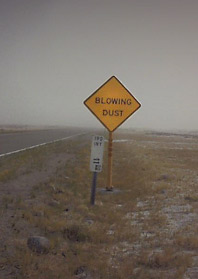Treatment as Affected State Status
In April, 2002 the Tribe became the first in Region 9 (California, Nevada and Arizona) to receive a determination of eligibility “Treatment as Affected State” under the requirements of the Clean Air Act (CAA) Tribal Authority Rule (TAR).
Emissions Inventory
Data collected from the Emissions Inventory has been provided to the National Emissions Inventory.

Tribal Air Training Programs
Staff continues training with the Institute for Tribal Environmental Professionals (ITEP) and the Tribal Air Monitoring Support (TAMS) Center for the development of necessary technical skills needed for monitoring program.
Ambient Air Monitoring
The Air Department currently operates two Tapered Element Oscillating Microbalances (TEOMs) for continuous monitoring of PM10 and PM2.5 emissions. The monitors allow real-time pollution levels to be reproted to Tribal members when levels reach health threatening levels. The Air Quality Department has developed Quality Assurance Project Plans (QAPPs) for its PM10, PM2.5, and meteorological monitoring. These QAPPs have been approved by the US EPA. All hourly data is validated and submitted to EPA’s Air Quality System.
Meteorological Monitoring
The Tribe operates a Meteorological Monitoring Program which provides current weather conditions to the National Weather Service and daily weather reports to the community. See current local conditions at: our weather page.
Residentail Burning Permits
The Air Department operates a voluntary burning permit program for residential burning on the reservation. The Air Department asks that anyone residing on the reservatoin come by the office and fill out a burn permit before burning around their home.
Tribal Environmental Exchange Network
The Tribe is a member of the TREX network which uses IPS Meteostar’s LEADS software to simplify the downloading of air quality data that is shared via internet at: Air Quality Report
